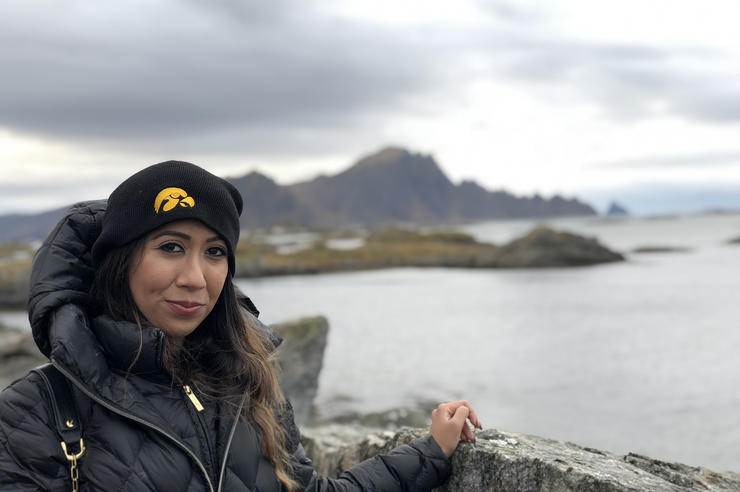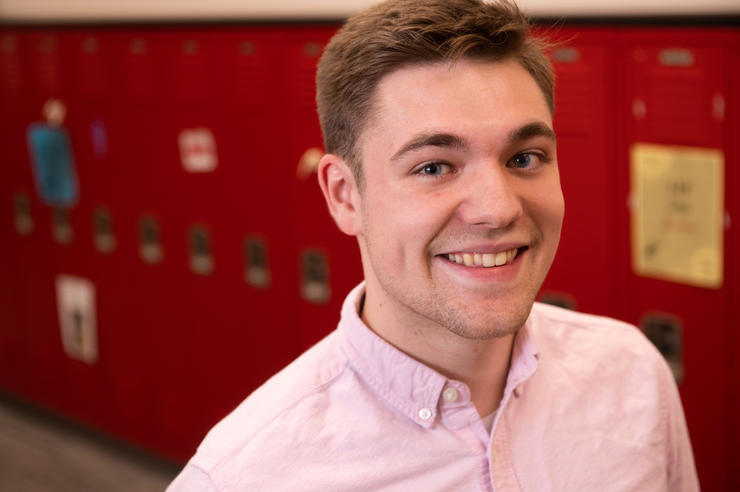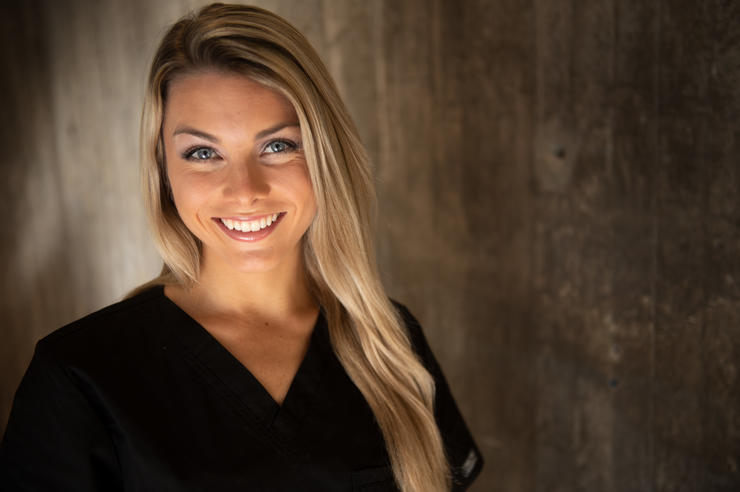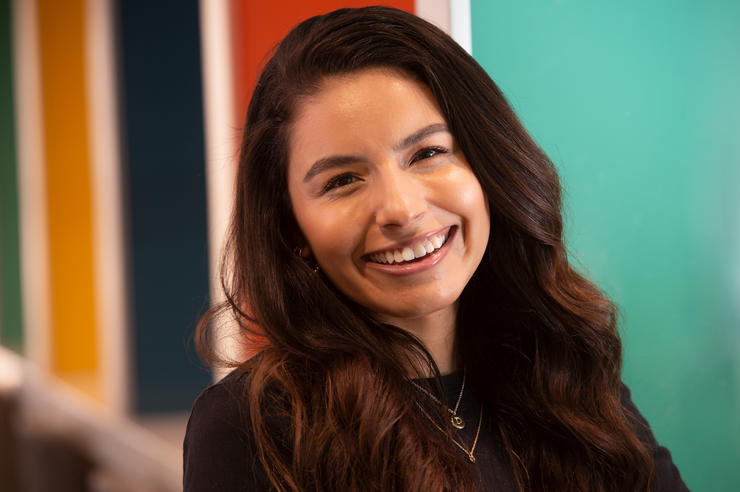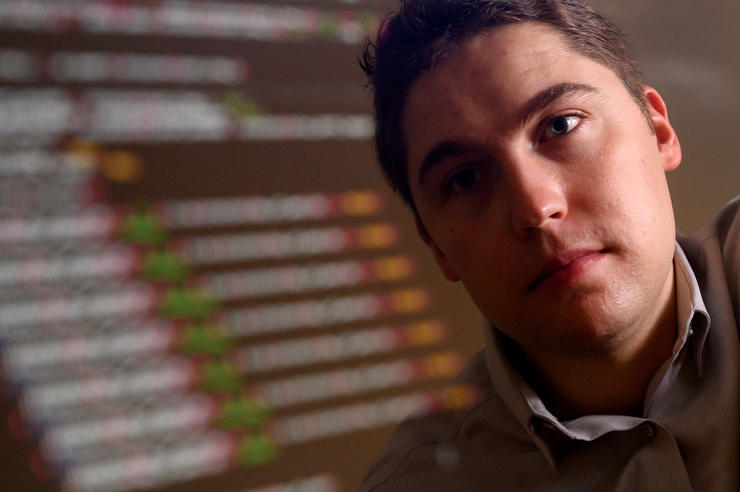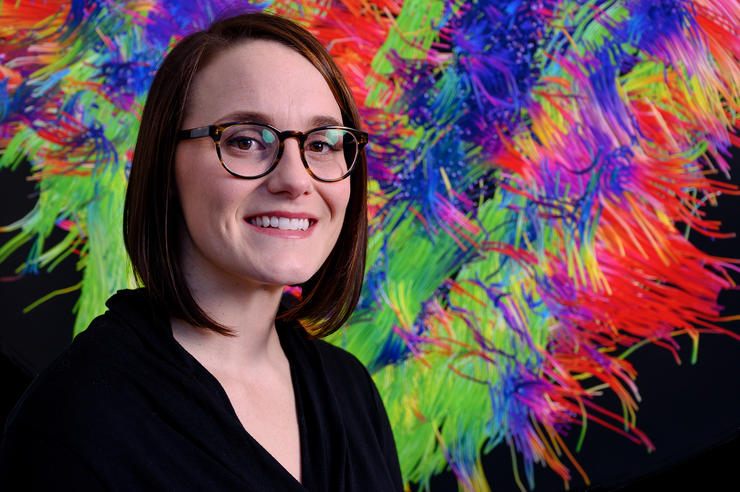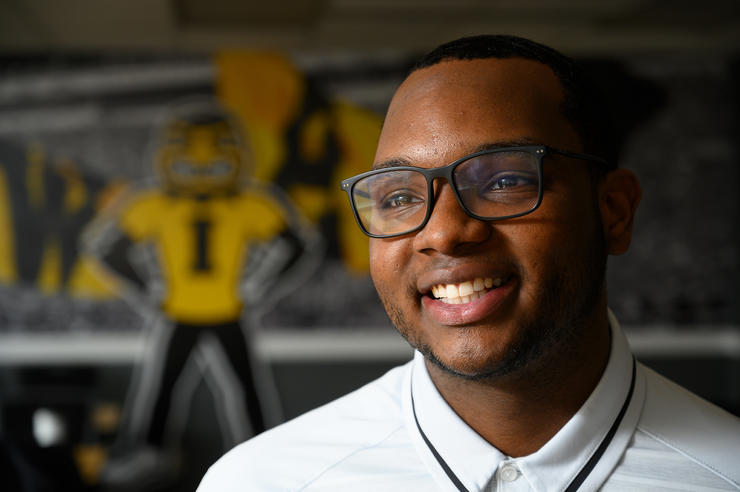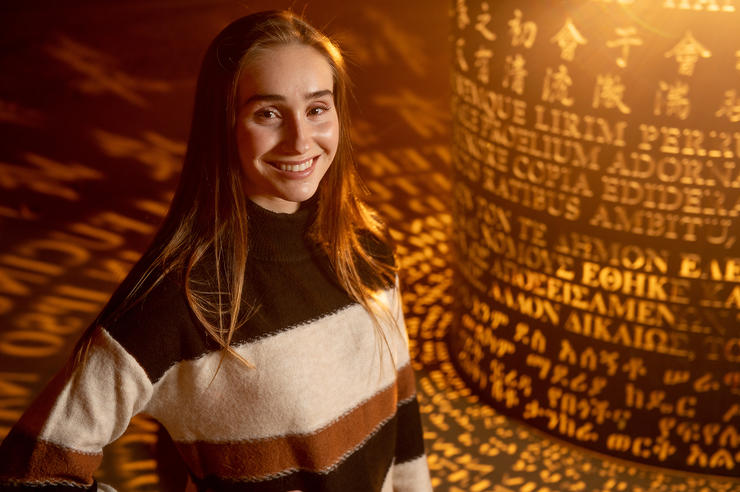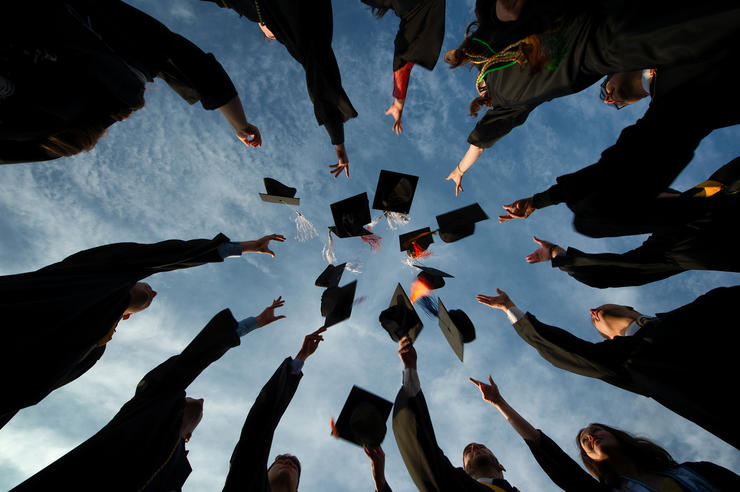Setting his sights on big tech
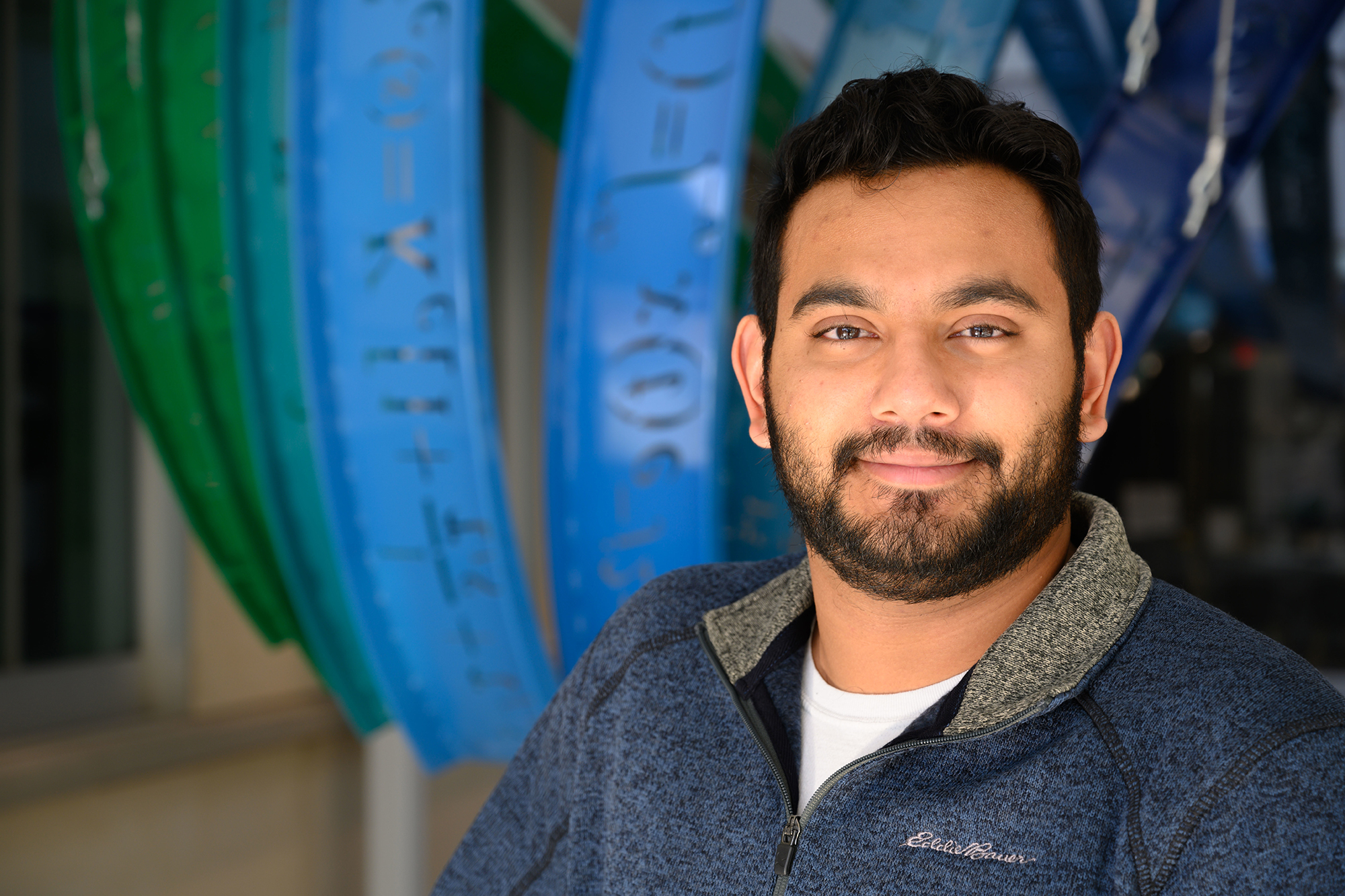
Degrees: computer science and engineering
Hometown: Camanche, Iowa
Plans after graduation: Patel will remain at the UI, conducting research next semester to complete his dual bachelor’s-master’s degree program, after which he hopes to work for a top technology firm in a large city.
Harsh Patel came to the University of Iowa thinking he wanted to be a doctor, but soon found an interest in an entirely different way of helping people.
“I took a programming class that all engineers have to take, and I said, ‘I can see myself doing this,’” he says. “I liked the whole problem-solving aspect.”
He switched from pre-med to biomedical engineering, but after more computer science classes realized he wanted to focus on software design, data analytics, and machine learning, which is a branch of artificial intelligence. Patel has now completed the undergraduate portion of a five-year combined bachelor’s and master’s program in computer science and engineering.
As a teaching assistant in introductory courses in software design and engineering computing, he was intimidated at first, but he soon felt comfortable with the role.
“I just like helping people,” Patel says. “I like helping students understand.”
Patel was an intern last summer for John Deere Intelligent Solutions Group, located at a new facility in Urbandale, Iowa, and focusing on problem-solving with technology, collaboration, testing, and development for John Deere precision products. Something that got him in the door for such an opportunity was an ability to problem-solve as part of a team, which he says he learned in specific courses in his UI program.
While the master’s in computer science (MCS) normally requires two years of coursework (32 semester hours) beyond the bachelor’s degree, the combined Bachelors-Masters U2G Programs allow students like Patel to obtain both degrees in five years.
“Learning how to problem-solve on a software development team is a very valuable skill,” he says. “Being able to develop code and to develop as a team are two different things. It’s more complicated in all aspects when you add more people. Compromise comes into play, but there are other skills specific to software development, certain roles people play.
“I’m a floater—I can help around a lot,” he says, an ability he connects to having grown up playing team sports. “I play what’s needed.”
In addition to playing multiple sports, another element of Patel’s childhood was the expectation that he would pursue higher education. Born in India, Patel joined his parents, who had immigrated to the U.S., when he was four years old.
“Education was their No. 1 priority,” he says, noting he has a younger brother who is majoring in computer science at Iowa. “Going to college was the obvious route. There was no other option.”
As for choosing Iowa specifically, Patel says being close to home and in-state tuition were important factors, “but the campus itself was just beautiful.”
“The faculty here are very approachable,” he says. “You can ask them anything. Sometimes I go to them during office hours just to talk to them because they have worlds of knowledge and experiences.”
Patel gained experience as a research assistant for faculty mentor Guadalupe Canahuate, associate professor of electrical and computer engineering.
One of Patel’s most significant experiences at the UI has been meeting new people in the Indian Student Alliance, which hosts a popular dance competition and other events known for drawing many students, faculty, and community members.
But what he has appreciated most during his time as an undergraduate, he says, are friendships he’s made through his classes and the Indian Student Alliance. The organization, which hosts a popular dance competition and other events, was something he hadn’t considered until a summer roommate suggested it.
“I’m not shy. I’m a people person. But I didn’t know there was an Indian group before that, so it helped me branch out,” he says. “I met a lot of people who share my culture and background. I wasn’t expecting that big of an Indian population because we are in Iowa, but it’s a really active group that draws a lot of students and community members to events, and it’s great.”
Next semester, Patel will focus entirely on a research project whose subject he hasn’t quite determined but that will likely focus on a machine-learning algorithm that involves data on a human health-related problem. Possibly cancer research.
Once he has defended his thesis, he has his sights set on New York, Seattle, Chicago, or the Bay Area.
“I’d like to work for one of the big tech companies, perhaps in software development,” he says.
“Maybe, hopefully, I’ll develop the next new thing that everybody uses every day. ‘Oh, are you using the Echo Dot? I actually made that.’ How cool would that be?”
His mentor Canahuate says such a possibility is within reach.
“My hope for Harsh is that he finds a job he feels passionate about and keeps believing in himself,” she says. “With hard work, he can accomplish everything he sets his mind to.”
